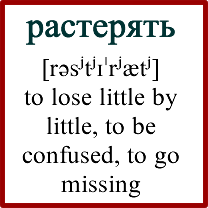
Here’s a recording in a mystery language.
Can you identify the language, and do you know where it’s spoken?

Here’s a recording in a mystery language.
Can you identify the language, and do you know where it’s spoken?
This week I learnt a couple of interesting French words – embabouiner [ɑ̃.ba.bwi.ne] (to flatter, butter up) and embobiner [ɑ̃.bɔ.bi.ne] (to bamboozle).
Embabouiner combines the prefix em- and suffix -er with babouin (baboon), so you are making a baboon of someone when you flatter them [source].
Babouin comes from the Middle French babouyne, baboin, from Old French babouin, from baboue (grimace, muzzle), which is related to German dialectal word Bäppe (lips, muzzle) [source].
Embobiner means to get round (someone), to pull to wool over someone’s eyes, to bamboozle or to outfox. It can also mean to wind up, reel up/in or wrap up. It combines the same prefix and suffix as embabouiner with bobine (bobbin, reel, spool, drum), so you are winding someone on a bobbin when you bamboozle them [source].
Bobine probably comes from the Latin word balbus, (stammering, stuttering, lisping, fumbling) and is immitative of the noise of a bobbin [source].
The English word bamboozle comes from the 17th century slang word bam (to trick, to con), from the noun bam (fraudster, cheat), possibly from the French embobiner [source].
While most languages are spoken, there are other ways to communicate, including sign languages, whistled and hummed languages, and ways to communicate via drums and sounds. This infographic gives details of some of these.

If someone said to you, “A’m gey wabbit, an a’v a sair thrapple comin on”, would you have any idea what they were talking about?
This is an example of Scots from L Colin Wilson’s Luath Scots Language Learner. It means, “I’m very tired, and I’ve a sore throat coming on”.
Wabbit, is a childish pronunciation of rabbit in English, and means exhausted, tired out, played out, feeble or without energy in Scots. It is also written wubbit, wibbit or wappit [source]., and it’s not certain where it comes from [source].
Here are some examples of how it’s used:
Thrapple [ˈθrɑpəl], means the windpipe, gullet or throat; to grip by the throat, throttle, strangle; to suppress (laughter) in the throat; to entangle with cords; to gobble up, to devour. It is also written thropple or throapple [source].
It is not certain where it comes from, but may be realted to the English dialect word thropple (larynx, windpipe), which comes from the Old English þrotbolla (windpipe) [source].
Here are some examples of how it’s used:
Thrapple & Wabbit would be a good name for a firm of solicitors / lawyers perhaps, or a comedy double act.

Here’s a recording in a mystery language.
Can you identify the language, and do you know where it’s spoken?
One of the things that came up at the French Conversation Group last night was the difference between buffalo and bison, and the words for them in French.
The creature found North America commonly known as a buffalo is actually a bison or American bison, and the its scientific name is Bison bison. There are two subspieces: the plains bison (Bison bison bison) – so good they named it thrice – and the wood bison (Bison bison athabascae).
In French it’s known as le bison or le bison d’Amérique du Nord. The plains bison is known as le bison des plaines, and the wood bison as le bison des bois [source].
There is also a European bison (Buson bonasus), which was hunted to extinction by the early 20th century, but was kept alive in captivity, and has since been reintroduced into the wild [source].
In French it is known as le bison d’Europe [source].
There are several species of buffalo in African, including the African buffalo or Cape buffalo (Syncerus caffer) in southern and eastern Africa, the African forest buffalo (Syncerus caffer nanus) in central and west Africa, the Sudanese buffalo (Syncerus caffer brachyceros) in west Africa, and the Nile buffalo (Syncerus caffer aequinoctialis) in east Africa [source].
In French the African/Cape buffalo is known as le buffle d’afrique, le buffle noir des savanes or le grand buffle noir des savanes [source].
The water buffalo (Bubalus bubalis) originating in South Asia, Southeast Asia and China, and is now found in other places [source].
In French it’s known as le buffle domestique or le buffle d’Asie [source].
According to many reports, a language becomes extinct every two weeks, on average, and over the next century, up to 90% of the world’s languages will cease to be spoken.
This is an oft-repeated story, but is it true?
According to Mike Campbell of Glossika, the actual data on language death tells a different story. He wrote a blog post about this, and made a video:
If a language dies every two weeks, you would expect an average of 26 to die each year, and 260 each decade. This is not what is happening at the moment, and new languages are even being discovered. Or at least forms of speech that were formerly classified as dialects are being reclassified as separate languages.
These the languages that have become extinct since 2008. The dates given are for when the last known native speakers of these languages died.
That’s a total of 18, plus a couple of dialects I haven’t listed, over the past decade – slightly less than the predicted 260. Moreover, while there are no native speakers of these languages, efforts are being made to revive some of them.
More information about recently extinct languages, language death and language revitalization:
https://en.wikipedia.org/wiki/Extinct_language
https://en.wikipedia.org/wiki/Language_death
http://rosettaproject.org/blog/02013/mar/28/new-estimates-on-rate-of-language-loss/
https://en.wikipedia.org/wiki/Language_revitalization

Here’s a recording in a mystery language.
Can you identify the language, and do you know where it’s spoken?

An interesting Russian word I learnt today is растерять [rəsʲtʲɪˈrʲætʲ], which means ‘to lose little by little, to be confused, to go missing. The first meaning comes from Wiktionary, but I can’t find any examples of it being used in that way.
It comes from the prefix рас- [rəs] & терять [tʲɪˈrʲætʲ] (to lose, waste, shed).
Here are some examples of how it’s used:
Related words include:
The adjective потерянный [pɐˈtʲerʲɪn(ː)ɨj] is used when an object is lost. It can also mean embarrassed, perplexed, hopeless or ruined. However, if a person is lost, пропавший [prɐˈpafʂɨj] is used, and also means missing, hopeless or long-lost.
There are probably other ways to talk about losing things, getting lost and being lost in Russian. What about in other languages?
Sources: Wiktionary, Reverso

I just registered for the Polyglot Gathering in Bratislava at the end of May / beginning of June. This will be the fifth time I’ve been to the Gathering – the second in Bratislava, and I’m looking forward to it.
I’ll be staying in the same AirBnB as last time, which is close to the Gathering venue, and not too far from the centre of Bratislava. It’s easier that way as I already know my way around the area.
I haven’t decided if I’ll give a presentation or run a workshop at the Gathering. At previous polyglot events I’ve given talks on writing systems, the origins of languages, the origins of words, Manx, and language death and revival, and helped with a Welsh language workshop. Any suggestions for what I could talk about at this and future polyglot events?
At the end of January I’m going to Edinburgh for LingoFringo, a fringe event to the main polyglot conferences and gatherings with a focus on workshops, community and networking events. I’ll be running a workshop on traditional Scottish Gaelic songs there.
So this month I’ll be brushing up my Scottish Gaelic, preparing for the workshop, and continuing to work on other languages. The languages I’m focusing on currently are Swedish, Danish, Russian, Esperanto, Cornish and Scots. This year I also plan to learn some more British Sign Language and Slovak, and maybe some German, Czech and Spanish.
I don’t plan to start any new languages this year – we’ll see how that works out.
What are your language-related plans for this year?